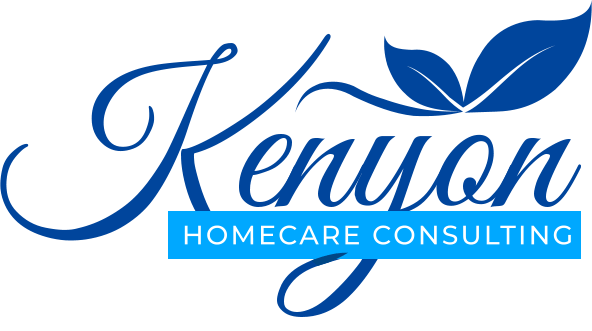Master the Home Care Compliance Strategies You Need Today!
Mastering regulatory requirements in home care, home health, and hospice is no simple feat. To maintain compliance, your businesses must actively identify relevant regulations, assess current compliance, develop a compliance plan, implement and monitor it while continuously improving efforts to maintain it. This involves staying informed about changes, providing employee training, conducting regular audits, and documenting procedures. Any findings that indicate noncompliance with rules and regulations should automatically become part of your QI problems and solutions.
Here is a more detailed breakdown:
1. Identify and Understand Relevant Regulations:
- Know your industry: Different industries have specific regulations (e.g., healthcare, home health, and hospice).
- Identify applicable laws and standards: Review government websites, industry associations, and consult with legal experts when needed.
- Understand the specifics: Go beyond just knowing the regulation exists; understand the specific requirements that apply to your agency.
2. Assess your Current Compliance position:
- Regularly Conduct Internal Audits:
- Be sure to regularly access the state rules for any relevant changes, at a minimum of yearly.
- Conduct a thorough assessment of your current policies, procedures, systems and complaint logs to identify gaps in compliance.
- Risk Assessment
- At least yearly, identify potential compliance risks and prioritize them based on severity and likelihood of occurrence.
- Develop a plan for correction of those issues and be sure to notify all staff who will be affected by any changes. Document all the work done and who was notified.
- Ensure your documentation (policies, procedures, training materials) is up-to-date and accurate.
3. Develop and Implement a Compliance Plan:
- Create a compliance roadmap:
- Outline specific steps, timelines, and responsibilities for achieving compliance.
- Be sure to assign a specific position the responsibility of monitoring compliance. The old rule “if everyone is responsible, no one is really responsible” is a very true statement.
- Establish clear policies and procedures:
- Develop written policies and procedures for all areas of compliance.
- Develop the steps for each area of compliance with quarterly reports of actions and outcomes.
- Implement controls:
- Implement controls (e.g., access controls, monitoring systems) to prevent non-compliance.
- Provide employee training:
- Ensure employees understand relevant regulations and their roles in maintaining compliance.
- Incorporate the training into orientation and at least yearly reminders at Inservice training of the critical areas of regulations and practices, e.g., handwashing in the homes, when and how.
4. Monitor and Maintain Compliance:
- Regular audits:
- As referenced, quarterly reporting and actions and outcomes for ongoing compliance are necessary to make regular auditing valuable and to initiate real compliance changes.
- Ongoing monitoring:
- Use automated tools or other methods to monitor compliance in real-time.
- Use phone logs and complaint logs to identify potential compliance issues.
- Again, be sure to assign a specific position to the monitoring process to assure it reviewed and reported on a regular basis.
- Continuous improvement:
- Remember, regularly review and update your compliance plan and procedures to adapt to changing regulations and agency needs.
- Documentation:
- Maintain detailed records of compliance activities, audits, and training.
- Establish a site where all documentation can be found.
- Seek expert advice:
- Consult with industry consultants or legal counsel for guidance on complex regulatory issues.
5. Utilize Technology:
- Compliance management software:
- Consider using specialized software to automate tasks, track compliance status, and manage documentation.
- Risk assessment tools:
- Use tools to assess and prioritize compliance risks.
- Training platforms:
- Utilize platforms to deliver and track employee training on compliance.
By implementing these steps, agencies can proactively manage their regulatory compliance, minimize risks, and avoid complaints to governing bodies, potential penalties, and legal issues.
If you are unsure on how to proceed with developing and maintaining an effective compliance program, contact Kenyon HomeCare Consulting at kenyonhcc.com or call 206- 721-5091. We are here to help!
Results Based Consulting
Did you find value in this blog post? Imagine what we can do for your home care or hospice agency. Fill out the form below to see how we're leading the industry with innovation, affordability, and experience.










